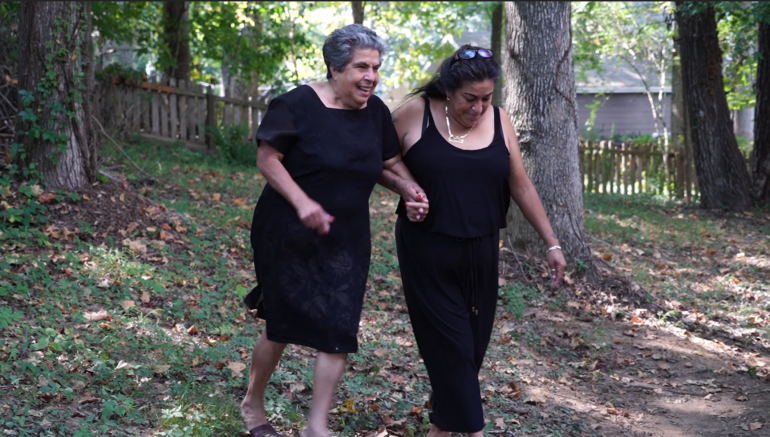We continue our series examining the human side of illegal immigration to the United States.
A Mexican family separated for 20 years – allowed to reunite, for a short time, as part of a U.S. migrant reunion program.
In part two, we hear more from the daughter, whose illegal journey to the U-S still worries her.
CGTN’s Alasdair Baverstock reports.
After two decades, a family reunion. A mother from Mexico flies to the United States to see her daughter, an undocumented immigrant, and her American-born grandchildren she’s never met.
Each lives through illegal immigration in their own way.
Isabel Gil, an undocumented immigrant in the U.S., was ecstatic to embrace her mother Imelda, allowed to visit through a Mexican-U.S. cooperative program to facilitate such reunions. They hadn’t seen each other in person since Isabel fled her troubled home state of Michoacan, twenty years ago.
“A person comes to this country because they want a better life for their children. In Michoacan there is a lot of murder and kidnapping. I’m scared of being forced to live through something like that,” Gil said.
Two decades in the States have allowed her to settle here, and today she’s raising three U.S.-born children, who met their grandmother for the first time in person.
Before she had children, Isabel worked cleaning houses. But, she said the more she got established in the U.S., the more uneasy she became.
“For the first few years I was fine, I wasn’t scared. But my children arrived and when my husband would go out to work, I begin to be terrified that he wouldn’t come home at night, that the police would stop him. And from then you start to live in fear,” Gil said.
Today, with the Trump administration’s more aggressive anti-immigration policy, deportation is a daily concern.
Paola Chavarro is a U.S. immigration attorney and said undocumented immigrants like Isabel have little chance of legalizing their status.
“Once you enter illegally, it’s almost impossible to become legal. A lot of them are afraid of buying a home, even if they have the money to do so. They are afraid of investing in a business. They’re afraid because they’re here today, but they could be deported fairly soon,” Chavarro said.
For Isabel and her family, the threat of a forced return to Mexico is real – and it’s something they talk about.
“If you are forced to go, then you have to accept it, but as long as you can be here, you stay. The oldest tells me that I should go alone and that he’ll come and visit me when he’s older. But I wouldn’t allow it, no way. Wherever I go, they come with me,” Gil said.
For Isabel, one of America’s estimated 11 million undocumented immigrants, it’s a life lived on the edge.
“You have to live in the moment, and hope that when you leave the house in the morning, you will return again at night. Because you never know,” Gil said.
For Isabel, deportation would mean losing everything, so with no real prospects for immigration reform, she sees this life in limbo as her best option, living among the undocumented in America.
 CGTN America
CGTN America

